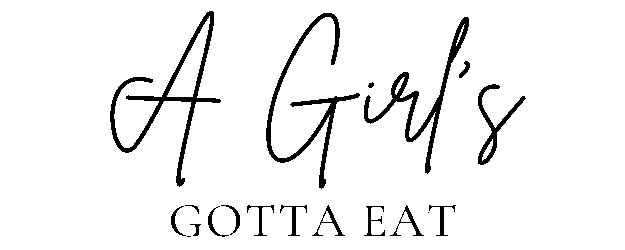How to Start a Freelance Writing Career (Based on Everything I Wish I Did 10 Years Ago)

When I first quit my job to work for myself, I was a freelance writer. Everything I do today to make money boils down to my writing skills, so this post will go over how to become a freelance writer based on what I did right, but mostly what I did wrong and what I wish I had done from the very beginning. So let’s start from the beginning.
It’s 2009. I’m one year out of journalism school, sitting at a desk in an office with exactly two tasks: answer the phone if it rings, and buzz people in the door if they knock. This had been going on for three years by now, and the banality of office work was taking its toll on my will to exist. The idea that any job I switched to would involve some variation of these feelings – the extreme boredom, the having to pretend to look busy when you’re not, the feeling exhausted by the time you get home with no energy to do anything else – had me in an existential tailspin. This could NOT be it, I thought. There HAS to be a way to exist in the world, make money, do meaningful work, AND have the ability to make a doctor’s appointment at 10am. But what could that be?
On one particularly slow day (lol), I was browsing job boards for writing-related jobs and came across a now-defunct website called Demand Studios. Their content is now sitting in graveyards labeled “eHow and “About.com,” but at the time they paid home-based writers $15-25 for one-off articles on things like “how to tie a tie” and “how to plant aloe vera indoors”. You could claim any article you wanted to write and there were thousands to choose from at any given moment. Fucking goldmine. I applied and within a couple of days, I was writing 4 or 5 articles in about 2 hours while sitting at work. (I didn’t have a hard time looking busy anymore).
Looking back it’s obvious that the pay was a joke and the work was silly, but the idea that I could write 6 of these articles a day and make more than I was making at my regular job had me feeling like I hacked capitalism or something. I started to plan my escape from office life and discovered another freelance job website called Elance (now Upwork), where you can create a freelancer profile and apply to jobs. This was where I found my first “real” freelance gig, and by the end of the year I was giving my coworkers the jerk-off motion hugging my coworkers goodbye as I sought out a career in content writing, vowing to never get a job where I had to hide my tattoos again.
Then I got hit by a truck. Not literally. The first thing that hit me was the amount of discipline required to work at home with nobody telling you what to do and an entire container of leftover chili cheese dip in the refrigerator. That’s a discussion for another post.
The second lesson I took way too long to learn is that you’re not going to make big bucks as a writer if you’re willing to write about anything and everything that comes your way. The big bucks come from the specialists who are well-versed in one specific field, because that’s who the clients want to hire. A real estate company is not nearly as interested in hiring the girl who’s written about handicap toilets, indexed annuities, and solar panels in the last 6 months when the next applicant has written hundreds of articles about the housing market, and it took me way too fucking long to learn that lesson.
How to Start a Freelance Writing Career
If you’re interested in becoming a freelance writer but would rather skip the part where you write about toilets for $20, this is what I wish I would have done in 2009:
(This post contains affiliate links)
Step 1: Pick a niche and obsess over it until you’re an expert on it
This was my biggest mistake. Being willing to write about anything and everything sounds noble, but think about it this way: if you were creating a website for your bakery and you wanted to drive traffic to it by publishing a couple of blog posts a week, would you rather hire the “anything and everything” writer who takes any job they can get or a writer who has their own food blog and spends all of their time creating food-related content?
You don’t have to be a certified expert in your niche (unless the job posting requires a specialized degree or experience), but you will make yourself more valuable if you position yourself as a specialist in one type of industry as opposed to just positioning yourself as someone who’s good with grammar and active voice.
When I decided to get back into writing 3 years ago, I said I was only going to do it if I could write about cannabis. I had become quite passionate about the industry, had a lot of “experience” with it, and had been reading more about the plant since getting my medical marijuana card. On a whim, I typed the word “cannabis” into Upwork’s search bar and to my surprise, a couple of dozen writing jobs popped up. I whipped up a profile, applied to some jobs, and within a few days I was writing blog posts for Errly Bird, a popular vape and accessories brand in the cannabis space.
It was easy for me to fall into this niche because of where I was at in life, but it might not be as obvious for you. Think about what you niche could be by asking yourself some questions:
What could you do a TED Talk on if you were forced to speak for 30 minutes about one topic?
Cannabis? Electric vehicles? Breastfeeding? Eyebrow waxing? The NFL? Politics? I don’t care how stupid it sounds, there’s more than likely someone out there who needs content on that topic. Write it down for the next part of this exercise and remember that it’s a lot easier to succeed if you’re writing about something you’re interested in.
What do people ask you for advice about the most?
Similar to the first question: are you the go-to person in your family for one specific topic? Do you have a specialized skill, degree, or experience that lends you credibility in a certain field? I’m thinking about my veterinarian friend who’s always fielding text messages from concerned friends and family. She’s the go-to person for “is this normal?” questions about every animal she’s ever met and would be the perfect person to write content for a vet’s office or some other type of animal website. You don’t have to be a vet-level expert to be a writer in a certain field, though. My friend who never shuts up about her vegan lifestyle has no professional credibility for anything she says but would still make a great writer for a veganism website because she’s passionate and always learning more about veganism.
Step 2: Research Demand on Upwork.Com
We’re not applying for jobs, just doing some research. Go to Upwork and type your niche into the search bar. Narrow your search to writing jobs if that’s what you’re after, and keep it open to any type of writing (creative, copy, blogging, etc) for the sake of this exercise.
If any jobs pop up related to your niche, that’s an excellent sign because it means content is in demand for the topic. Browse through these jobs and jot down some of the things people are asking for – do they want blog posts answering specific questions about their products? Do they need content about the industry in general? Do they want informational posts, how-to guides, blogs or copy? If you notice any themes, trends or patterns, be sure to take note of them.
You can set up a profile and apply to any of these jobs you think you’d be a good fit for, but if you’re just starting out and want to test the waters, you probably don’t have any writing samples. Here’s how you can fix that by doing what I wish I would have done a decade ago:
Step 3: Start Your Own Niche Website
I know this sounds big, but it’s easier than you think. Once I had been writing about cannabis for a year or so, I was running into this problem where stoner dudes were asking me to write for their weed magazine for $25. I’d snarl at the number, then look at their website and immediately think “I could make this, but better.” So eventually I did and that’s how I created Jane Dope, my blog about all things cannabis (more on that in a minute).
The best way to start a website is with a self-hosted WordPress website, which you can learn how to set up in this post. It goes over exactly how to buy a domain and hosting with Bluehost, the company that I use, and can be done in like 20 minutes. I am considering switching my hosting to Siteground this year, so maybe check out both to see what one you like better.
If WordPress feels intimidating for you, you can also start a website with something simpler to use (but more expensive as a result) like Squarespace or Wix. I haven’t used either but I know lots of people like and vouch for both platforms. I’ve always been in the business of creating and monetizing content, and in my opinion, WordPress is best for that because it’s the most customizable and SEO-friendly, but it’s ultimately up to you and how much you need to learn in order to get this operation up and running.
Step 4: Publish Some Niche-Focused Content
If you want to become a writer in a certain niche but you don’t have any samples, you’re going to use your website to create some samples. Use the keywords and trends you wrote down from Upwork and come up with 5-10 ideas for articles you think you could write.
Had I done this when I first started writing about cannabis, my first few articles would have probably been something like this (and I did end up writing several of these when Jane Dope launched):
What is the endocannabinoid system?
What are cannabionids?
What’s the difference between THC and CBD?
Why your CBD business needs a blog
Remember one thing: this is your own website, your own space to write whatever you want, with no editor to dilute your voice or force your words into a structured outline. This is incredibly rare when you’re working for other people, so take advantage of this opportunity by creating the content you want to see in the world and the content you want to show your potential clients. Maybe you want to interview a well-known professional in the field. Email them, explain what you’re doing, and ask if they could contribute some quotes to a sample story you’re working on to pitch to editors. Maybe you want to write what you think is “THE TRUTH” about an industry that’s filled with misinformation (AKA me in the cannabis industry). You can write a how-to guide on how you do something you’re regularly showing others how to do.
As soon as you’re happy with the blog posts you’ve written, get them published on your site. Add some relevant free stock photos from Unsplash if you don’t have images of your own.
Use these pieces as examples of your writing when you talk to potential clients. Use this website for your business cards and direct people here as an example of the work you can offer. Write more content and add to your site regularly if you’re inspired to keep writing for it.
Add a Services Page
You want to make it as obvious as possible that you’re available for hire, and you can do this with your website by creating a services page and providing more detail about what you offer. You don’t have to list prices – I would discourage it, especially in the beginning – but you want to make sure people know that you’re available for hire and what they can hire you to do.
Make sure to leave an email at the bottom for people to contact you directly. I also recommend including an email form on the page that they can type a message right into and send off to you, but make sure your email is also available because some people prefer to have a record of who they’ve contacted.
Monetize Your Website Content
If you actually want to make a living as a freelance writer, you’re going to need more than one source of income. I could have used this more than anything when I first started. The move from a regular paycheck to an “only when you get a client and do the work” paycheck was startling and nearly murdered my bank account.
You’re not going to make a sustainable living just off publishing 5 blog posts on your own website, but you can use ads and affiliate links as another way to bring in money on this content that you’re already making and sharing. This post has more detail on how to make money off your own website or blog. Some might work better for you and your industry than others, but remember that your website is your own domain so you can do anything you want with it, and I highly encourage you to monetize it at some point because why not?
Tips for Finding Freelance Clients
I could write a whole post on how to find freelance clients but for now I just want to give you some basics to think about since you now have a whole website to create and write.
There are several things you can do to establish yourself as an authority and find clients:
Create a profile on sites like Upwork and Contently – even if you never plan on taking a job from them – just to get your name, profile, and website out there
I have mixed feelings about sites like Upwork. On one hand, they’re the whole reason I started writing for the cannabis industry, which led me into the second act of my writing career. On the other hand, they take a 20% cut and hold your money for too damn long once your client pays. I don’t want to encourage you to rely on these sites in order to find work, but I do want you to at least create a profile with a link back to your website. Some people who look at your website will choose to contact you directly rather than through Upwork, so use it to your advantage and put yourself out there on any freelancer sites you can.
Share your blog posts on social media and engage with leaders in your niche
To get the word out about your availability, start sharing your blog posts on your social media pages. Follow brands you’d like to write for and engage with their posts. Wherever you take up space on the internet, encourage people to read your content and share it with anyone they think might be interested. Remember that all anyone is sharing online at any given moment is content, so the more you create, the more you’ll be seen. Look at the thought leaders and experts in your niche and observe how they run their businesses. What kind of content are they publishing and sharing? Are they looking for contributors? That could be you.
Master SEO to Rank Your Website and Help Clients Find You
This is my favorite because you need to learn SEO if you’re going to succeed at writing on the internet, so you might as well use your own website as practice. Search engine optimization – otherwise known as SEO – is the practice of using keywords to communicate with search engines and encourage people to click on your website when it pops up in search results. When you master SEO on your website, you’ll have clients finding you and you won’t have to worry about spending time applying for gigs. That’s what started to happen with Jane Dope – I get several emails a week from people who want me to work with them, enough that I can afford to be selective about the jobs I can take. Such a luxury.
This post has the basics on SEO and what business owners like you need to know about it.
This post has SEO writing tips for bloggers and online business owners.
Cold Email People/Companies You’d Like to Write For
I have always been afraid of cold emailing people, but again, my niche site has helped me get over that fear. The number of cold emails I get that don’t even have a link back to their website could probably power a small city for a day. The bar for cold emailing is low, and I’m telling you this because if you are capable of writing an email that is professional, friendly, that gets to the point about how you can be helpful, and you provide links back to your business website and encourage them to reach out to you, you’re doing better than 99% of the mediocre serial entrepreneurs in my inbox. Don’t be afraid to email people you want to work for. They’re just people too, and they have no idea what they’re doing either. None of us do. It’s great.
So that’s what I wish I had known to do when I first started freelance writing. I was going to leave it there but realized I should mention the two other essentials you should REALLY know about: contracts and accounting. Again, these two things would have made my life 13 million times less stressful in 2009:
Secure Your Business With Contracts
One of the smartest things I did when I went back into freelancing was buy professional contracts for working with my clients. Around the same time I started to look up contracts, Ash at The Middle Finger Project launched a full package of every contract you need as an online business owner, so I grabbed one right away. She now has the Quit Your Job Store, where you can buy the same contracts I use to protect myself from non-paying clients and show up to meetings looking super professional. The contracts even come with a video walkthrough on what’s in there and how to customize it to your needs.
Before I work with anyone, I have them sign a Client Services Agreement and Statement of Work that outlines everything we plan on doing together and how much they’re going to pay me. I use HelloSign so we can both sign the contract digitally.
Make Invoicing and Bookkeeping as Easy as Possible
It took me way too long to get a consistent bookkeeping system going for my business. I was in a bad habit of sending invoices to clients via my personal Paypal account, which is not what Professional Business Women do. Two years ago I started using Quickbooks Self-Employed to manage all of my bookkeeping, and it does everything I need it to do. I use Quickbooks for:
- Sending invoices to clients and collecting payments
- Syncing all my bank accounts and credit cards so I can track and categories business vs. personal expenses (you can even split expenses)
- Track how much money I’m making through freelance clients, my various blogs, my Etsy shops, etc. If you have multiple income sources, this will make your life so much easier. I didn’t even think a bookkeeping service would be able to accommodate the weirdness of my business but everything is handled and it’s truly the best. All I have to do is show up to my accountant’s office twice a year with a copy of my profit and loss sheet (automatically created in Quickbooks) and he does his best job at sticking it to the man on my behalf.
- See my estimated taxes due and pay my quarterly or annual taxes
It gives me everything I need to show my accountant come tax time, and I wish I would have known about this when I was flailing around like an idiot in the beginning. I would have saved so much time! I would have known what I was making and what I was spending! Imagine how much more chill my 20s would have been!
You can use my referral link for 50% off any Quickbooks service for 6 months.
I hope this makes it easier for you to make money as a freelance writer with some focus and clarity. If you’d like to take a deeper dive into how to get paid to write, I highly recommend you check out the Freelance Writing Academy, which offers multiple courses on how to make money writing regardless of your experience.







This is by far the most helpful blog post I’ve read on all of the above topics. You are truly a gem! Thank you so much for all of your guidance, on behalf of everyone who finds themselves reading your post 🙂
Thanks so much, Ashley! I’m glad it was helpful for you, please reach out if you have any questions 🙂
I want to read your article later today, and want to hear more about what you are doing. Thank you.
Thank you so much for sharing! I just discovered your blog a few days ago through Pinterest and am thoroughly enjoying everything I’m learning!
Of all the blog posts I’ve read about how to start freelancing without losing your mind, this is without a doubt the best, most informative post! You are so forthcoming with excellent information and I am eternally grateful for your willingness to share such valuable information without baiting readers into buying an overpriced course.
Thank you so much, Bekkah! That is very encouraging to hear 🙂 please reach out if you ever have questions!